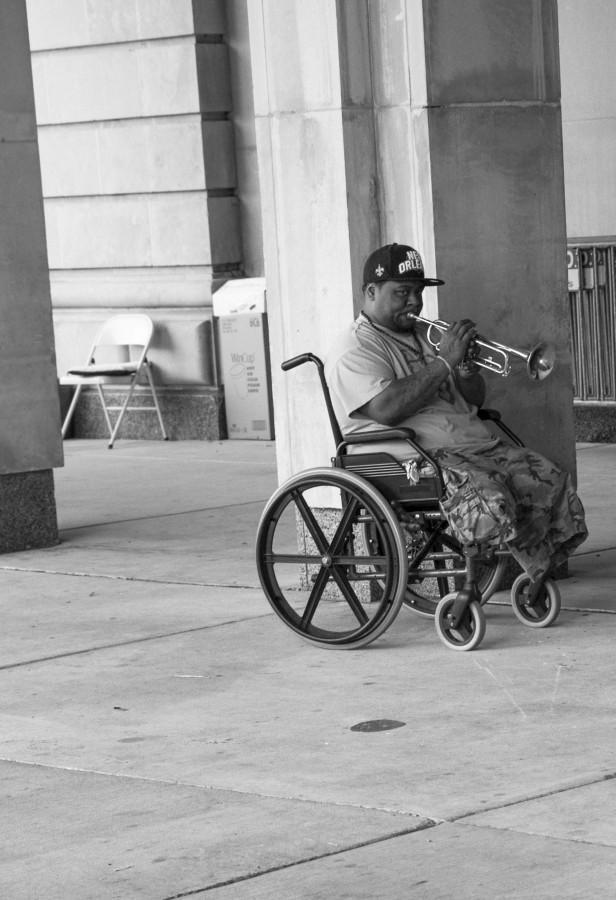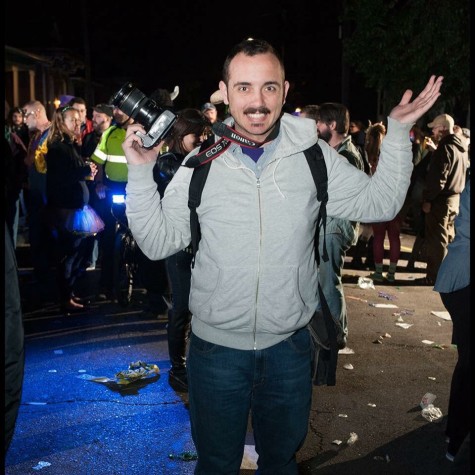Editorial: Being a true New Orleanian
New Orleans should mean more to Loyola’s community than Mardi Gras and Bourbon Street. The same city that offers good times, good food and good friends has a dark side that we cannot afford to ignore.
August 22, 2014
W
hen it comes to New Orleans, there is no shortage of people who share an intense devotion to the city. Whether or not they were born here seems almost secondary.
Like others in the Loyola community, the members of this editorial board are also passionate about living in New Orleans.
Even if some of us are only here for several months a year, we’re just as likely as any lifelong native to have a strong love for the food, art and atmosphere that make up this city.
Unfortunately, this board also feels that such a deep attachment to New Orleans often makes us turn a blind eye to its imperfections. This board urges the members of the Loyola community to care about the city in its entirety and not just its merrier aspects.
New Orleans is far from being the idyllic, laissez-faire city its tourist industry depicts. Being a New Orleanian should be an authentic commitment to a city with a problematic history as well as a vibrant culture.
Recently, on Aug. 19, Bloomberg.com reported that the bottom 40 percent of the city’s population earns just 7.5 percent of the city’s total income. This ranks New Orleans as second worst city in the country for income inequality.
Our city continues to have one of the worst murder rates in the country. It is plagued by an excessive amount of violence disproportionately affecting young minorities, a history of distrust between residents and law enforcement officers and the largely ignored population of homeless people. We cannot remain detached from these issues and still see fit to call ourselves New Orleanians.
As members of the Loyola community, we are in poweful positions, as we are surrounded by the tools and people capable of improving New Orleans. Though we may be unable to permanently erase all the tragedies that take place in our city, that doesn’t mean we should pretend they don’t exist.
When we claim a place as our home, we have to be prepared to actively love and nurture it. When we claim something as part of who we are, we have to acknowledge that any flaws in it are a reflection of our shortcomings as well.
Loyola community, we urge you to act in such a way that will uplift this city. Around campus and beyond it, there are a number of organizations devoted to improving New Orleans. We would also like to point out that most of these programs are just as accessible to graduate students and alumni as they are to undergraduates.
Student-led organizations, such as the Loyola University Community Action Program, specifically aim to rebuild neighborhoods, combat hunger and homelessness, tutor and mentor the city’s youth and promote environmentalism.
Other organizations such as the Loyola Philosophy Club and several of our sports teams regularly visit local schools to mentor students. The Stuart H. Smith Law Clinic and Center for Social Justice at the Loyola College of Law regularly advocates for and works with people from all over the New Orleans area. Our school’s service-learning program is another valuable way to engage with the New Orleans community. These, however, are only a handful of the programs which are available through Loyola University.
As members of the Loyola community, we should take advantage of these and other opportunities to uplift the city because it allows us to experience New Orleans in a way that most others cannot.
Being a New Orleanian should mean more to us than roast beef poboys, Saints football or hand grenades. Those things amount to a few snapshots of a city taken by a tourist — someone who may enjoy the city immensely but certainly can’t claim to call that enjoyment “love.”
But we are not tourists.
We are New Orleanians and we are proud to call this city our home.







